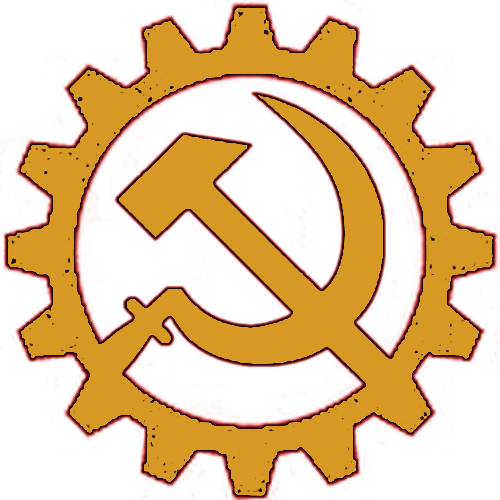- cross-posted to:
- memes@lemmy.ml
- cross-posted to:
- memes@lemmy.ml
Just to preface this, I’m not arguing against the critique of the reactionary position in this meme, but speaking more generally and trying to round out understanding of the whole philosophical argument. We clearly know that the idealist free will position is inaccurate, but the mechanical determinist position doesn’t give us the full picture either.
While our lives are shaped by our material conditions, we should always keep dialectical materialism in mind and not fall into a purely mechanical determinism that becomes a pessimistic or nihilistic fatalism.
We can observe how the determinist, fatalist mechanist element has been an immediate ideological “aroma” of Marxism, a form of religion and of stimulation (but like a drug necessitated and historically justified by the “subordinate” character of certain social strata).
When one does not have the initiative in the struggle and the struggle itself is ultimately identified with a series of defeats, mechanical determinism becomes a formidable power of moral resistance, of patient and obstinate perseverance. “I am defeated for the moment but the nature of things is on my side over a long period,” etc. Real will is disguised as an act of faith, a sure rationality of history, a primitive and empirical form of impassioned finalism which appears as a substitute for the predestination, providence, etc., of the confessional religions. We must insist on the fact that even in such a case there exists in reality a strong active will, a direct influence on the “nature of things,” but it is certainly in an implicit and veiled form, ashamed of itself, and so the consciousness of it is contradictory, lacks critical unity, etc. But when the “subordinate” becomes the leader and is responsible for the economic activity of the mass, mechanicalism appears at a certain moment as an imminent danger, there occurs a revision of the whole mode of thinking because there has taken place a change in the social mode of being.
We should always keep in mind that, despite the limitations imposed on us by material conditions and history, we are parts of the whole and not just passive entities being directed by outside forces. Our actions and choices, especially collective ones, do matter and are what shapes our societies.
As Marx puts it:
Men make their own history, but they do not make it as they please; they do not make it under self-selected circumstances, but under circumstances existing already, given and transmitted from the past.
could not agree more
Are not the choices we make highly materially and socially determined? Where does free will come from? My position is scientific determinism coupled with ontological uncertainty. Things are complicated and contradictory as hell, and just because we study the world doesn’t mean we can predict the future.
I’m not saying we have free will, or that our choices aren’t materially and socially determined, I’m saying that we still do make those choices, and I’m cautioning against mechanical materialism that turns into pessimistic or nihilistic fatalism. We are parts of the whole, and we are conscious of it. We are active parts of the historical process and our history happens through our actions. Do you dispute Marx’s framing I quoted above?
I agree, I just don’t think that disproves determinism in any way. In my view communism is probably inevitable, but who knows? So I keep fighting. It’s easy to argue that capitalism must come to an end. I referenced socialism or extinction in my previous post.
how does determinism explain development? i feel like it should be viewed, as many things, as a spectrum and not something binary. For me development is the anti-thesis to determinism.
edit: while most things are already determined by our existing material conditions, i think we definitely have a bit of leeway, otherwise we wouldn’t be at this stage of development.
Contradictions are not precluded from determinism. All things are composed of unities of opposites constantly in change. Just because a mechanical materialist may not expect what did happen doesn’t invalidate determinism. The world is absurd, but that doesn’t bring wills into the question.
Free will is a human’s subjective experience making choices.
Determinism is describing that the more information about a system, the more the result can be predicted accurately. With perfect knowledge, one gets perfect predictions. (nobody will get perfect knowledge)
Both of these statements can be true without negating each others premise.
But why do people think there is some sort of contradiction?
Perhaps we should look at this dialecticaly.
A human body has desires and needs to sustain itself and also will do behavior to produce happy chemicals for the brain. The brain creates a model of reality based on its experiences in order to optimize the best experiences. People can calculate less optimal choices because of the incompleteness of their mental models of the universe. There will always be a contradiction between any brain’s model of the universe and the actual universe. A mental model can be reinforced to make that mental model give feel good hormones to the body. When the universe demonstrates to the mental model that it is false in some manner it gives bad feeling hormones.
Most conservatives in KKKrackerland I have met seem to insist on free will because of the central point of their model is that the world that benefits them and they want to feel that they made the right choices. They tie their sense of self to their nation. When evidence presents itself that the nation is less than good they cling to the ambiguity to justify their “truth” about the goodness of the nation. Those that suffer are merely making choices that are wrong. If the impoverished and criminalized made the right choice, they wouldn’t be poor or criminal. When they do criminal acts to hurt others, sometimes it is for the joy of hurting others. Other times it is because they know that they can get away with it and indifferent to the suffering of those they hurt.
Most liberals I have met cling to the model of determinism because they get pleasure from being correct more than identifying with victory. Some liberals of persecuted minority groups often identify with that failure and develop a sense of learned helplessness. If one does not believe in choice, one can not see themselves improving themselves or the world. When they do crimes its often because they lack the imagination to meet their needs in a legal manner.
As a communist I want to improve myself to give myself the power to help others, and in return, I need to have faith that those others will help me improve this wretched capitalist hellscape. I’m a highly empathetic person and I see the needs of all as my own needs. My research seems to indicate that socialism is the optimal means to stop others from harming me and harming themselves, for that reason I support socialism. I don’t need to have 100 percent knowledge to choose socialism in a deterministic material world.
But why do people think there is some sort of contradiction?
There are different definitions of “free will”, but the common one is purely idealist in a sense that our thoughts aren’t guided by our material conditions. It’s also often a religious position that god gave humans a soul and therefore only we have “free will”. If you drill down to the fundamentals of that position you reach a position that says our thoughts don’t (need to) obey the laws of physics and similar universal laws. It’s a position of idealist dualism that states our “mind” is not material and is separated from the material reality we exist in. It very often follows that material reality itself doesn’t really exist, except in our “mind” and then you reach a purely solipsistic position. That’s why there is a contradiction. If the definition you’re using for “free will” is basically just our material will, our thoughts, then the contradiction disappears, but I wouldn’t call that “free will”, as it will cause more confusion due to the definitions.
Here’s Lenin from ‘Materialism and Empirio-criticism’:
The materialist elimination of the “dualism of mind and body” (i.e., materialist monism) consists in the assertion that the mind does not exist independently of the body, that mind is secondary, a function of the brain, a reflection of the external world. The idealist elimination of the “dualism of mind and body” (i.e., idealist monism) consists in the assertion that mind is not a function of the body, that, consequently, mind is primary, that the “environment” and the “self” exist only in an inseparable connection of one and the same “complexes of elements.” Apart from these two diametrically opposed methods of eliminating “the dualism of mind and body,” there can be no third method, unless it be eclecticism, which is a senseless jumble of materialism and idealism.
Note that the “complexes of elements” used here basically mean our sensations of reality, but it’s a confusing term introduced by empirio-criticists to “smuggle in” idealism into materialist philosophy which is what Lenin is critiquing.
This. It is also worth noting on that excerpt that there is certainly contradiction there. The thing is, it’s not an intractable contradiction and it doesn’t make our Marxist minds explode. Liberals see a contradiction and think “that can’t exist then, there must be a correct non-contradictory answer.” Only with a dialectical mode of reference does one become at ease with contradictions.
You are correct that there are still contradictions. What I meant was that the intractable contradictions specific to idealist thought disappear when we fully embrace materialist dialectics. Like you said, we can easily deal with contradictions, but liberals can’t.
I am in complete agreement. It’s just annoying how the colloquial use of free will implies that choices are made at some level beyond restraint, whereas it’s in fact a part of the functioning of a material brain. Thanks for the effort post.




